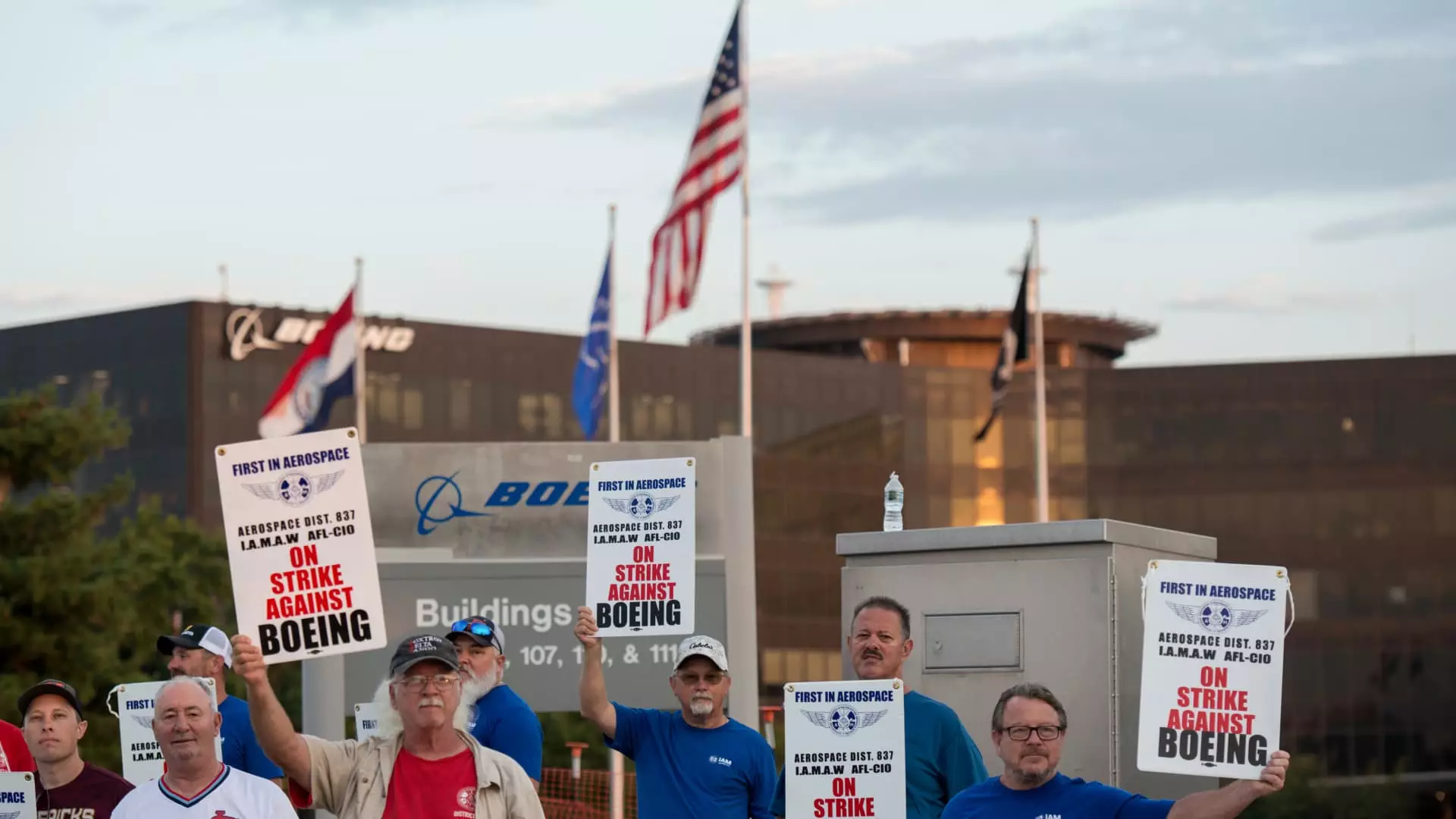In a bold move that echoes the spirit of resilience and determination, around 3,200 skilled employees at Boeing’s defense division have initiated their first strike in nearly three decades. This action signifies more than just a labor dispute; it embodies a collective assertion for recognition and respect in a high-stakes industry critical to national security. These workers, integral to assembling and maintaining advanced military systems like F-15 fighters and missile technology, have clearly articulated their dissatisfaction with the company’s recent proposals. Their refusal to accept a contract that failed to meet their expectations underscores an essential truth: workers are not merely cogs in a machine but vital stakeholders deserving fair treatment.
The Disparity Between Promises and Reality
Boeing’s offer, which included a modest 20% wage increase, a $5,000 signing bonus, and some enhancements to retirement benefits, appeared promising at first glance. However, the union representatives argue that these concessions did not adequately reflect the exceptional skills and dedication their members bring to the company. Particularly contentious were the improvements limited to employees at the higher end of the pay scale, which failed to address the broader workforce’s needs. This gap reveals a broader issue within corporate negotiations where superficial benefits are used to placate or distract, all while core concerns about fair wages and respectful treatment remain unaddressed.
The Power Dynamics in a Critical Industry
Despite Boeing’s confident downplaying of the strike’s potential impact—CEO Kelly Ortberg’s dismissive attitude about managing through the disruption—such labor actions carry profound implications. Defense contractors operate within a delicate nexus of national security policy, industrial capability, and workforce morale. Strikes in this sector threaten to disrupt the production and maintenance of vital military assets, highlighting the importance of valuing labor in strategic industries. The recent history of work stoppages at Boeing, including a massive 32,000-worker walkout over commercial aircraft contracts, serves as a stark reminder that even industry giants like Boeing are vulnerable when their workers’ grievances are ignored.
A Call for Industry-Wide Reflection
This strike is more than a localized dispute; it is a compelling call for the aerospace and defense industries to reevaluate their relationship with their workforce. Workers’ demands for fairness reflect a broader need for companies to foster respect, equity, and recognition. As Boeing’s defense division generates nearly a third of the corporation’s revenue, acknowledging the importance of these workers could set a precedent for improved industrial relations throughout the sector. Ignoring such signals risks undermining long-term stability and innovation, which depend on motivated and valued employees who feel their contributions are truly appreciated.


Leave a Reply